A flourishing garden is a source of pride and nourishment for many homeowners, but it also attracts unwelcome visitors. Among the most common culprits are rabbits, whose love of fresh greens can turn a thriving garden into a scene of devastation almost overnight. While chemical repellents are available, many gardeners prefer natural methods that are safe for plants, pets, and the environment.
This article explores five effective natural remedies to keep rabbits out of your garden, providing detailed strategies to protect your plants while maintaining an eco-friendly approach.
Understanding the Problem: Why Rabbits Target Gardens
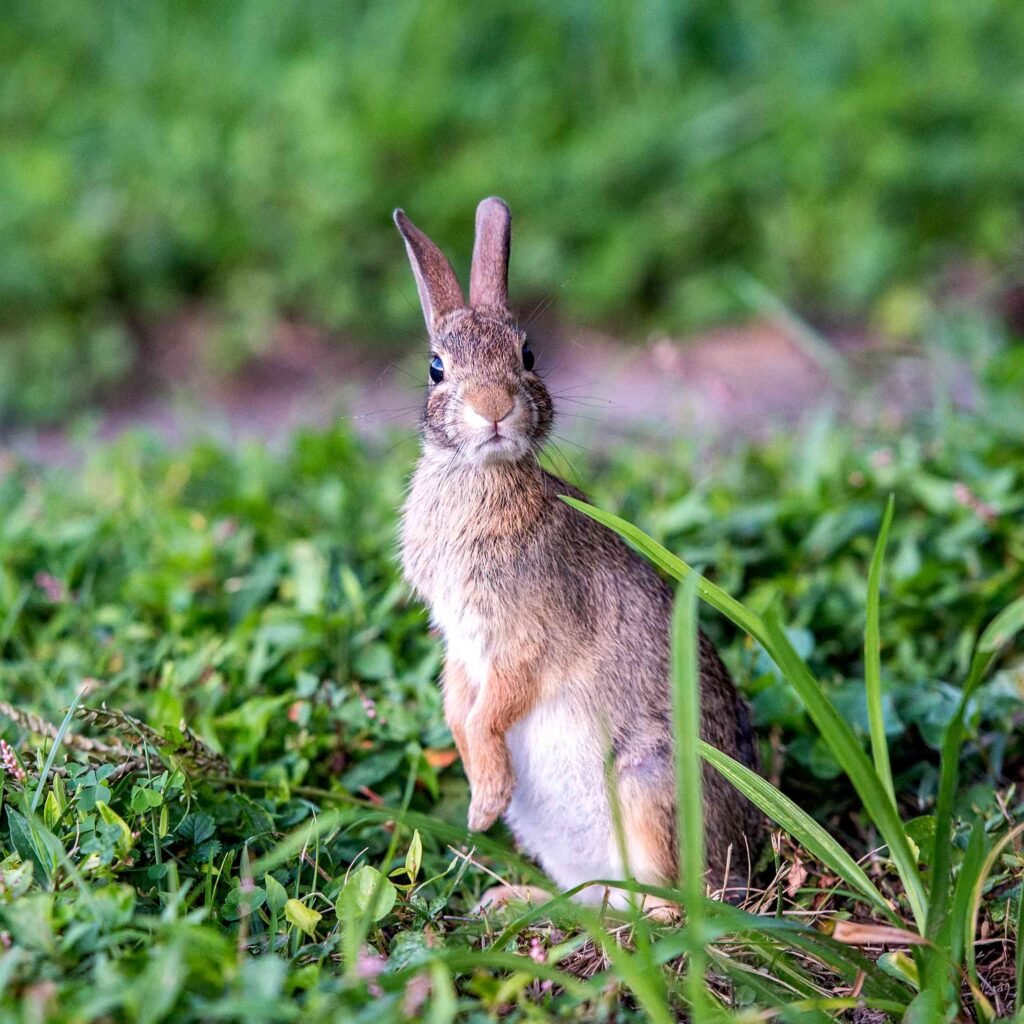
Rabbits are herbivorous mammals with voracious appetites, particularly for tender shoots, leafy greens, and young seedlings. Autumn and spring are particularly problematic seasons: in spring, rabbits seek fresh new growth, and in autumn, they stock up before winter.
Signs of rabbit damage include:
- Chewed stems at or near ground level
- Missing or damaged vegetables and flowers
- Tracks or droppings around garden beds
Knowing the behavior of rabbits helps gardeners apply remedies effectively and prevent recurring infestations.
1. Fencing: A Physical Barrier
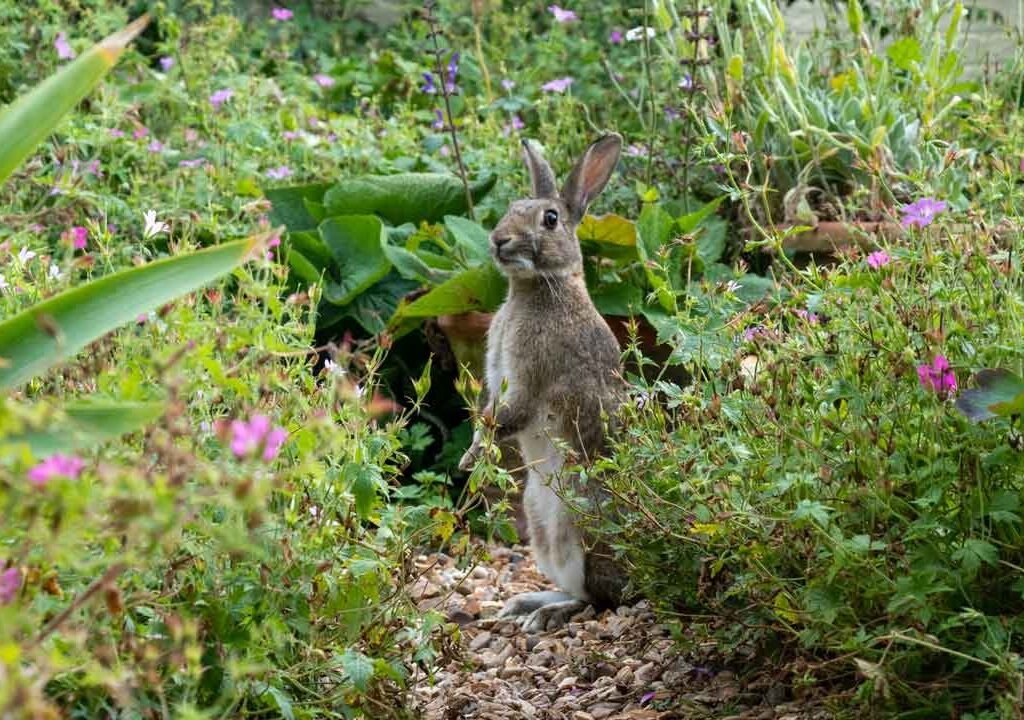
How Fencing Works
Fencing is one of the most reliable ways to prevent rabbits from entering garden areas. A well-installed fence creates a physical barrier that rabbits cannot bypass.
Best Practices for Rabbit-Proof Fencing
- Height: Use a fence at least 2–3 feet high; rabbits can jump short distances, so taller fencing is often more effective.
- Burrowing Prevention: Rabbits dig, so bury the bottom of the fence 6–10 inches into the ground or use an L-shaped apron to prevent tunneling.
- Material: Lightweight chicken wire or mesh with small openings (no larger than 1 inch) works well.
- Gate Management: Ensure gates close tightly to avoid gaps that allow rabbits to slip through.
Benefits and Considerations
- Fencing offers long-term protection and works for small and large gardens alike.
- Initial setup requires effort and investment, but maintenance is minimal.
- Combining fencing with other deterrents enhances effectiveness.
2. Companion Planting With Rabbit-Repellent Plants
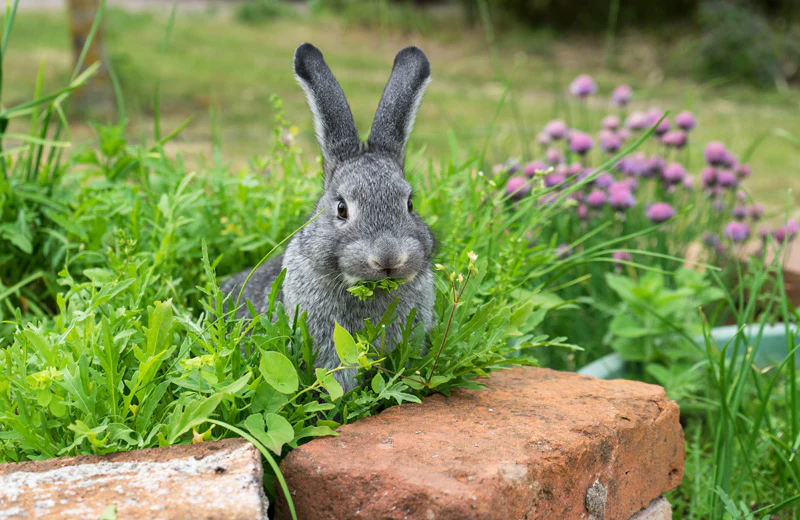
Certain plants naturally repel rabbits due to their strong odors, bitter taste, or tough textures. Incorporating these plants into your garden creates a natural, chemical-free barrier.
Examples of Rabbit-Repellent Plants
- Marigolds: Strong scent deters rabbits and other herbivores.
- Lavender: Aromatic oils are unpleasant to rabbits.
- Alliums (garlic, onions, chives): Pungent smell repels rabbits while enhancing garden biodiversity.
- Daffodils: Toxic to rabbits and deer, making them a reliable border plant.
Implementation Tips
- Plant rabbit-repellent species along garden perimeters or interspersed between vulnerable crops.
- Combine with edible plants in patterns to create a “fragrant barrier” that rabbits avoid.
- Maintain plant health; stressed or dying repellent plants may be less effective.
Companion planting not only deters rabbits but also enhances garden aesthetics and attracts beneficial insects.
3. Natural Repellents: Smells Rabbits Hate
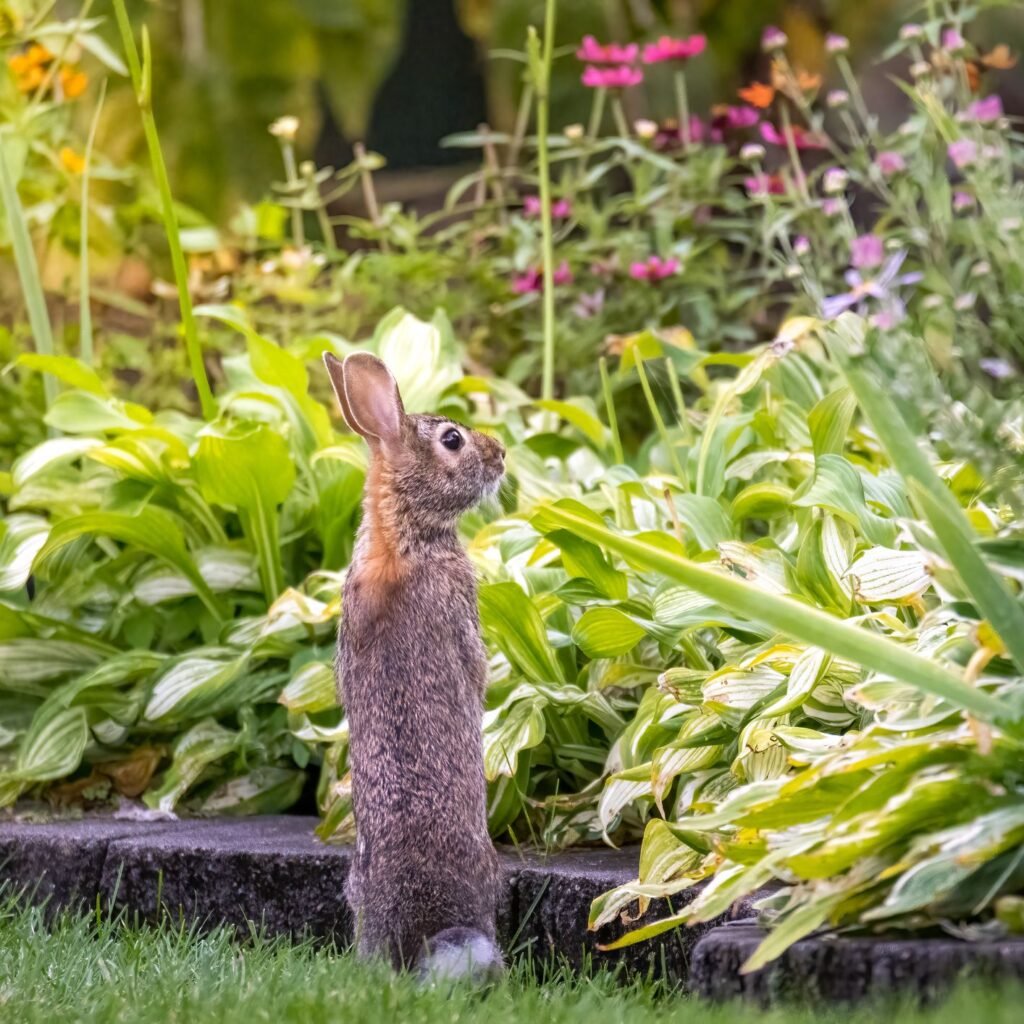
Rabbits have a highly sensitive sense of smell, making odor-based deterrents highly effective. Several natural substances can be used safely in the garden:
Examples of Natural Repellents
- Human Hair or Pet Fur: Place clumps near garden edges; rabbits associate human scent with danger.
- Blood Meal or Bone Meal: Strong smell discourages browsing. Use sparingly and follow safety instructions.
- Pepper-Based Sprays: A mix of crushed red pepper and water sprayed on leaves deters rabbits without harming plants.
- Garlic or Onion Spray: Homemade sprays create an intense odor that rabbits avoid.
Application Tips
- Apply repellents after rain or irrigation to maintain effectiveness.
- Rotate scents periodically; rabbits may become accustomed to a single odor over time.
- Test sprays on a small area first to ensure plants aren’t damaged.
Natural repellents are inexpensive, easy to apply, and safe for pets and wildlife.
4. Encourage Natural Predators
Predator presence is a powerful and sustainable way to control rabbit populations. Birds of prey, foxes, and even domestic pets can reduce rabbit activity in and around your garden.
Strategies to Attract or Encourage Predators
- Birds of Prey: Install tall perches or nest boxes to attract hawks or owls.
- Domestic Cats or Dogs: Supervised pets can patrol garden edges and discourage rabbits.
- Ground Predators: Encouraging hedgehogs or certain snakes in the area can help maintain balance, though caution is needed to protect pets.
Benefits and Considerations
- Natural predation is environmentally friendly and reduces the need for chemical deterrents.
- Requires understanding local wildlife and ensuring safety for pets and children.
- Works best as part of a comprehensive rabbit management plan, combined with fencing and repellents.
5. Garden Maintenance Practices
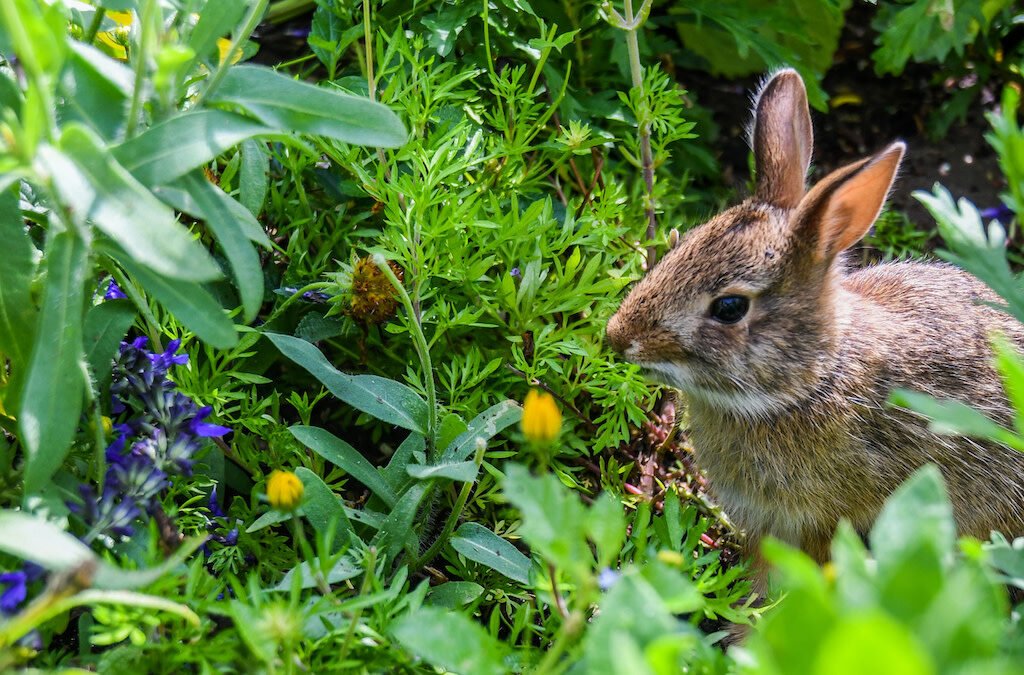
Proper garden management can reduce rabbit attraction and limit damage. By altering the environment, you make your garden less appealing to these small herbivores.
Key Practices
- Clean Up Debris: Remove brush piles, tall grass, and other hiding spots where rabbits may nest.
- Harvest Promptly: Remove ripe vegetables and fruits quickly; overripe produce attracts rabbits.
- Use Raised Beds: Elevate planting areas to reduce access for small mammals.
- Spacing and Companion Planting: Avoid dense planting that gives rabbits cover; intermixing repellents and edible plants improves protection.
These preventive measures are simple, cost-effective, and enhance overall garden health.
Combining Remedies for Maximum Effect
No single method guarantees total rabbit prevention. Combining multiple strategies produces the best results:
- Physical barriers like fencing stop rabbits from entering.
- Repellent plants and sprays make the garden less appealing.
- Natural predators provide ongoing deterrence.
- Garden maintenance removes nesting sites and reduces food availability.
A layered approach is sustainable, humane, and minimizes damage without relying on harmful chemicals.
Conclusion
Rabbits can be charming in the wild, but in your garden, they can be destructive pests. By using natural remedies—fencing, companion planting, odor-based repellents, predator encouragement, and proper garden maintenance—you can protect your plants safely and sustainably.
The key is to act proactively, combining methods to create a multi-layered defense that deters rabbits while enhancing the garden ecosystem. Over time, these strategies help establish a thriving garden that remains rabbit-free, healthy, and visually appealing throughout the growing seasons.
Embracing natural solutions not only safeguards your vegetables, flowers, and ornamental plants but also supports a balanced, eco-friendly approach to gardening—benefiting both you and the environment.
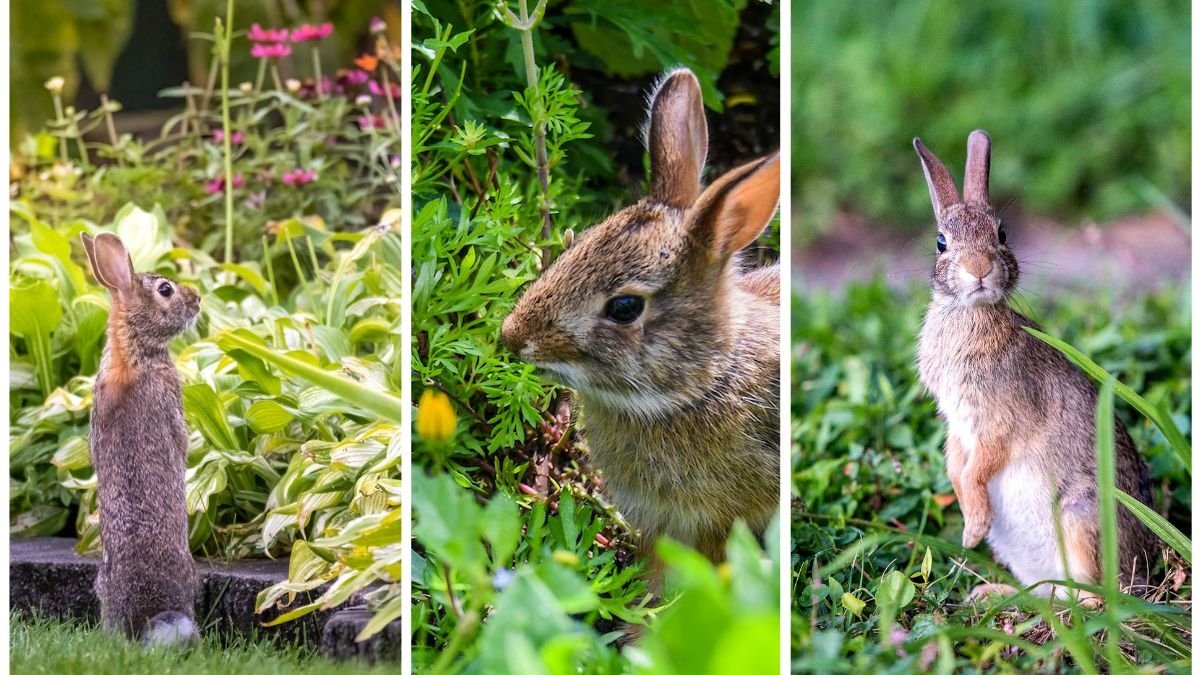
Leave A Comment